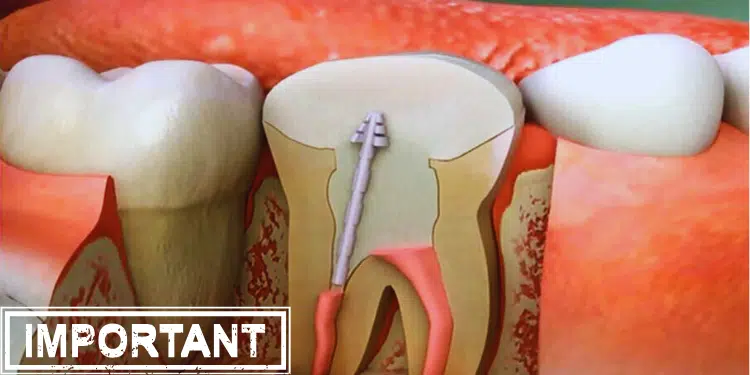Root canals are a common dental procedure designed to save a damaged or infected tooth by removing the pulp, cleaning the interior, and sealing it.
While often considered a safe solution for tooth preservation, emerging research suggests that root canal procedures may contribute to chronic diseases in some cases.
Let’s explore the science behind these claims, the potential risks, and what you can do to protect your health.
What Happens During a Root Canal?
A root canal procedure involves:
- Removing the infected or inflamed pulp from the tooth.
- Cleaning and disinfecting the interior of the tooth.
- Sealing the tooth with a filling or crown to prevent further infection.
Although the tooth is no longer “alive,” it remains in the mouth as a preserved structure. This process can sometimes lead to complications, including potential long-term health risks.
The Potential Risks of Root Canals
1. Hidden Bacterial Infections
- What the Research Says:
Studies, including research by Dr. Weston Price, a pioneer in the field of holistic dentistry, suggest that root canals can harbor harmful bacteria. Despite thorough cleaning, the microscopic tubules within the dentin of the tooth can act as a breeding ground for anaerobic bacteria.These bacteria can release toxins into the bloodstream, potentially leading to systemic infections or chronic inflammation. - Why It’s a Problem:
The sealed tooth is no longer connected to the body’s immune system, making it impossible for the immune system to address lingering bacteria.
2. Connection to Chronic Diseases
- Scientific Findings:
Some researchers, including Dr. Josef Issels, have observed correlations between root canals and serious illnesses, such as cardiovascular disease, autoimmune disorders, and certain cancers.A study published in the Journal of Periodontology found that oral bacteria linked to periodontal disease and root canals could migrate to other parts of the body, potentially contributing to systemic inflammation and diseases like diabetes and arthritis. - Why It’s a Problem:
Chronic inflammation is a known trigger for many diseases. Bacteria from root canals may release toxins that travel through the bloodstream, affecting distant organs and tissues.
3. Toxin Release and Biofilms
- What the Research Says:
Biofilms—clusters of bacteria encased in a protective layer—can form in root canal-treated teeth. These biofilms are resistant to antibiotics and may release toxins like lipopolysaccharides (LPS), which are known to trigger immune responses. - Why It’s a Problem:
These toxins can contribute to systemic inflammation, which is associated with conditions like heart disease, kidney disease, and neurological disorders.
What Are the Alternatives?
If you’re concerned about the potential risks of root canals, consider discussing these alternatives with your dentist:
1. Tooth Extraction
- Why It’s Safer:
Removing the tooth eliminates the risk of harboring hidden infections. Once the tooth is extracted, it can be replaced with a dental implant, bridge, or partial denture.
2. Ozone Therapy
- How It Helps:
Ozone therapy can be used as an adjunct treatment to sterilize the root canal and reduce bacterial contamination.
3. Holistic Dentistry Approaches
- Holistic dentists focus on biocompatible materials and techniques that minimize risks. They may recommend thorough detoxification protocols after a root canal procedure.
How to Protect Your Health If You’ve Had a Root Canal
If you already have a root canal, you can take steps to minimize potential health risks:
- Regular Dental Checkups: Ensure your dentist monitors the treated tooth for any signs of infection.
- Strengthen Your Immune System: Eat a nutrient-dense diet, exercise regularly, and manage stress to support overall health.
- Detoxify: Consider using detox protocols under the guidance of a healthcare professional to help clear any toxins.
- Advanced Imaging: Request 3D cone-beam imaging to check for hidden infections or abscesses.
The Debate: Root Canals and Chronic Disease
While many conventional dentists argue that root canals are safe and effective, holistic practitioners and some researchers urge caution.
The scientific community is still divided on the extent to which root canals may contribute to chronic diseases. More research is needed to fully understand the potential risks.
Root canals are a widely used dental procedure, but they’re not without controversy.
If you’re considering a root canal or have already had one, it’s important to weigh the potential risks and benefits.
Stay informed, explore alternatives, and work closely with your dentist to make the best decision for your long-term health.
Share this article with friends and family to spread awareness about the potential risks of root canals and the importance of holistic dental health!

